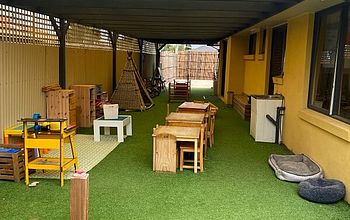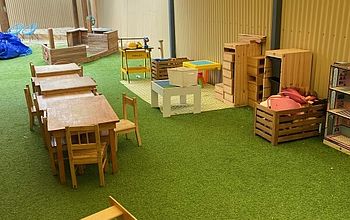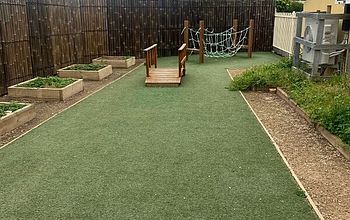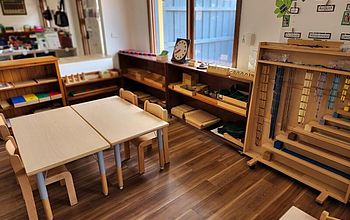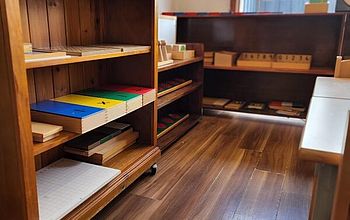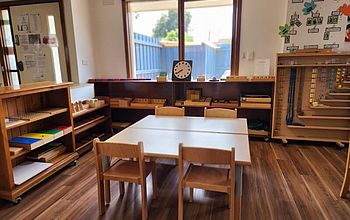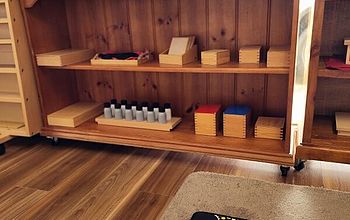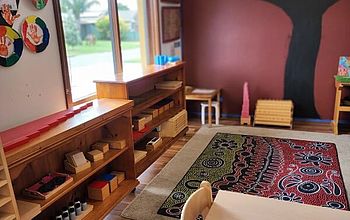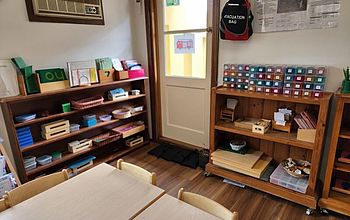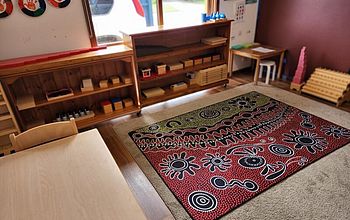
Montessori Western Metro Education Centre
PRE-SCHOOL PROGRAM 3-5 YEARS & LONG DAY CARE
About
Pre-school is an important part of your child’s life, their first step into the education system. Montessori Western Metro is a not-for-profit pre-school that also offers accredited long day care. Kinder sessions are guided by qualified and experienced Montessori Diploma holders who are also childhood educators.
Our centre is based on the philosophies of Maria Montessori, and integrates the objectives of the Victorian Early Years Framework so your child will meet all the learning outcomes needed to be ready for school.
Montessori Western Metro Education Centre prides itself on being a child safe organisation with zero tolerance for child abuse.
Age grouping and staff ratios
We are an open centre with one large room.
Maximum capacity: 20 children.
Ratio: 1 Staff member to 11 children
Children aged: 3 - 5 years
The small group of 20 children provides children and families an atmosphere that is warm, welcoming, nurturing, and enjoyable. Your children are valued and encouraged to develop their full potential in a safe and supportive environment.
Pre-school Program
We run a Montessori program that closely follows Maria Montessori’s approach so your child will get the full benefit of the program from qualified Montessori Diploma childhood educators.
The Montessori approach offers your child more than a place of learning. It offers a community of children and adults who all help each child to learn, grow, create, develop, form values, and relate peacefully and respectfully to other people and the natural world.
Curriculum
Your child will be taken through the program under the Montessori philosophies:
The Prepared Environment
Dr. Montessori developed what she called the “Prepared environment” “The environment is prepared so that children can be free to express themselves, to reveal their needs and attitudes which otherwise might remain hidden or repressed”.
“Children must be free to act spontaneously in an environment that allows them to manifest their natural traits”. (Maria Montessori). Order plays a very important part in the lives of small children.
Order consists in recognising the place for each object in relation to its position and in remembering where each thing should be. Such awareness is essential for a child to feel secure in its environment and to build on existing experiences. Order in the environment makes children feel safe.
Education Is A Whole Of Life Experience
Montessori education is a whole of life experience; the child carries what s/he has learned through to the home and the community; Respect for life and the natural world, the environment, for peers, family and community.
Children in a Montessori environment are treated with a deep respect, every child is an individual and has particular needs and interests. It is listening to and observing the child, which directs the development of curriculum in a Montessori School.
Children need to feel accepted valued and safe in their school and wider community. Children explore and develop an appreciation and awareness of different cultures and customs throughout their world, which gives them the opportunity later to become a citizen of the world.
The Absorbent Mind
Montessori believed that children from the age of birth to 6 have a heightened ability to absorb information and experiences. “sensitive periods” a window of opportunity for intellectual and physical development.
Montessori’s emphasis on children being allowed the freedom to work alone and to develop concentration does not mean that she underestimated the importance of social development. Instead what she saw was that it was precisely because the children were allowed to work in such freedom that they could display such love and care towards others.
She saw that children literally absorbed the world around them and that true discipline and harmony was something that came from within and was not something that could be enforced.
Education For All The Senses
Learning through the senses is based on an empirical natural philosophy it is part of a tradition that goes back to Aristotle. Marie Montessori and almost all progressive primary practice are based on the same philosophy.
Montessori theorised that anything that is absorbed into the brain must first pass through the senses. Montessori developed a range of activities to develop children’s sensorial experiences visual, hearing, sense of smell, taste, touch.
Montessori saw that children built on their physical experiences of the world through their senses, and by carefully designing interesting Materials which the children were drawn to and experiment with, she could help them extend this understanding.
She did so by taking each of the senses in turn and developing materials that isolated certain aspects that could be increasingly explored by the children.
Friendliness With Error
Self -correction leads the child to self-education or what Montessori calls auto- education. An error in any type of work is never brought to the attention of the child, the Montessori teacher will take note and then invite the child to use the materials again at a later stage, presenting the activity to the child again or as many times as it takes for the child to absorb the information.
Montessori believed that experimenting with the Montessori materials, leads the child to finding a solution. Much like a scientist, systematically observing scientific matter, reaches a hypothesis, then continues with the experiment until the hypothesis is proven.
When working or learning with children we believe in Montessori’s plea for the child: “Let me do it myself”.
Freedom And Discipline
‘Freedom of movement’ in a prepared Montessori environment, is something Dr Montessori learned observing nature. Already, before we are born we are in a specially prepared environment where we have freedom of movement – the womb.
Maria Montessori believed that during all of our formative years, depending on our stage of development, the preparation of the environment should vary according to the physical and mental needs of a child. If the child is free to learn, it is because he/she has acquired from his exposure to both physical and mental order, “an inner discipline”.
This is the core of Dr Montessori’s educational philosophy. An ordered motivated child becomes a self- disciplined child. Montessori introduces children to the joy of learning at an early age and provides a framework in which intellectual and social disciplines go hand in hand”.
Selection & Enrolment
Enrolment is limited and subject to availability.
- Book a tour: Book a tour for children and family to see the centre and speak to a supervisor about the program and philosophy
- Submit enrolment form: No application fee.
- Child placed on waiting list: Selected based on Department of Education and Training (DET) guidelines, then currently enrolled families, siblings, and working parents.
- If position is accepted: Schedule a longer play/visit before child’s first day to help with a smoother transition.
- Collect enrolment pack: Includes copy of enrolment form, and parent handbook.
Montessori Western Metro Education Centre strives to build strong relationships with families. We have a duty of care to our staff and children to make sure their well-being is cared for at all times. Your expectations of the Centre are noted - and in return we let all families know our expectations through policies, procedures, and Code of Conduct.
Fees
We offer full day and half day sessions, the daily rate of $89 applies without childcare subsidy.
CCS/CCR: Families may qualify for Child Care Subsidies (CCS). This is subsided by the Australian Government and depends on a family’s estimated taxable income. Parents are responsible for applying for the CCS. For more information, to check eligibility, or to apply, phone the Department of Human Services 13 61 50.
Discounts: Available for siblings, low income earners, and families in financial difficulties.
Contact us to book a tour.
